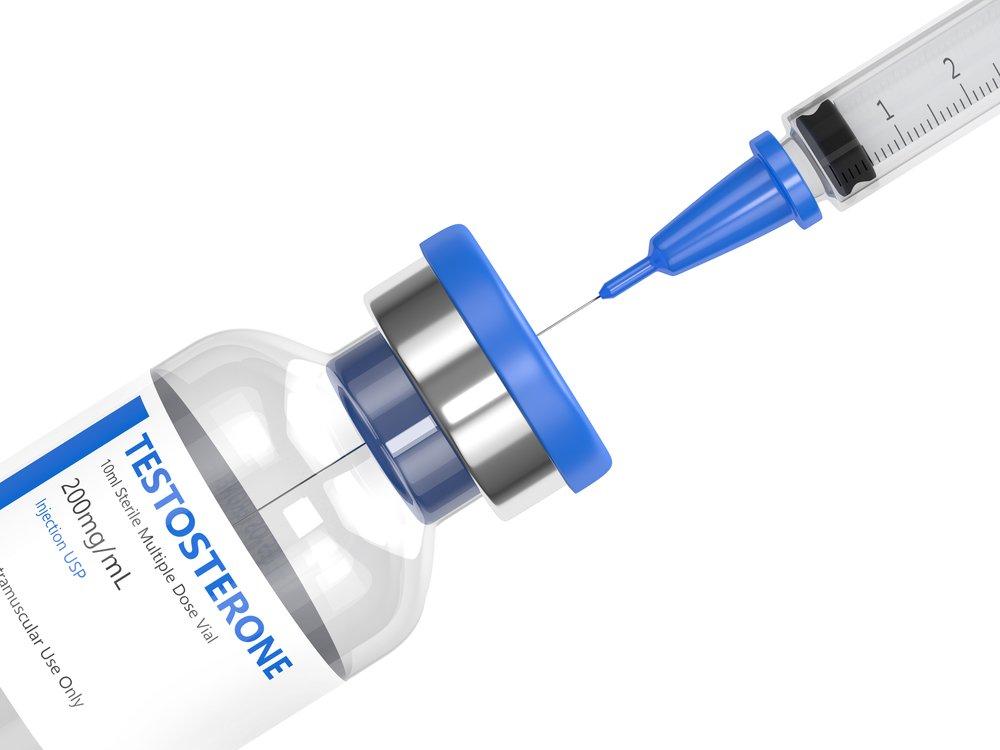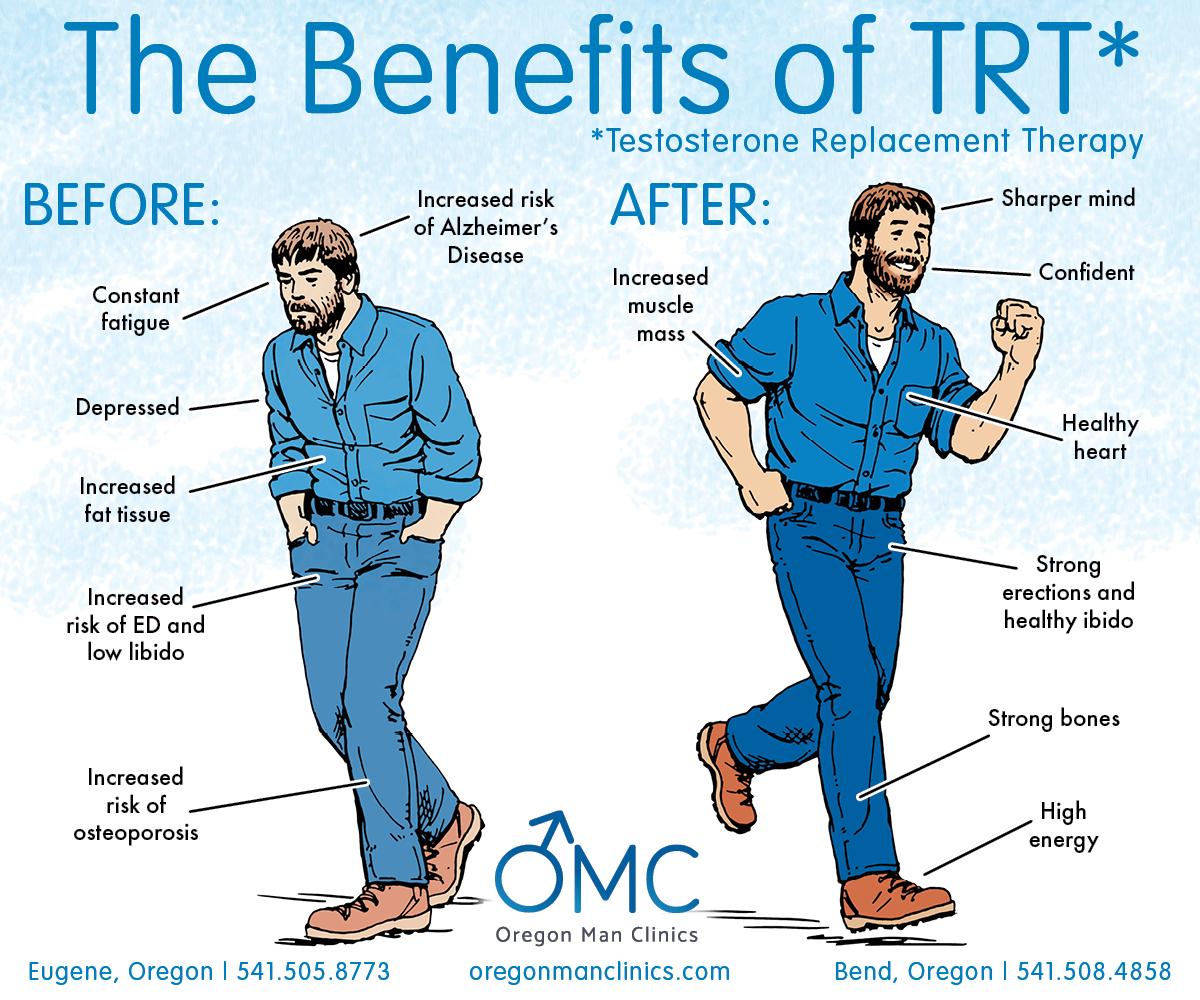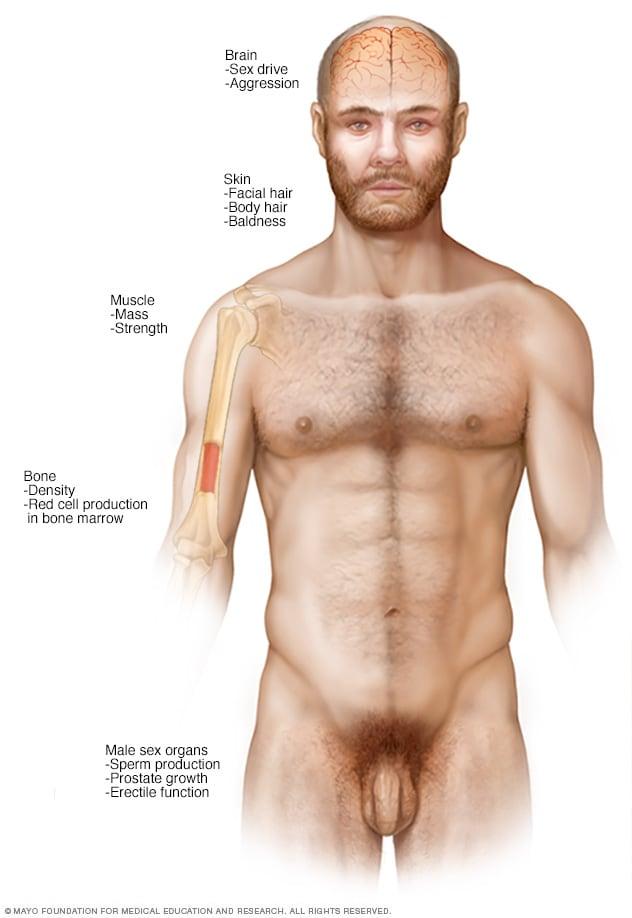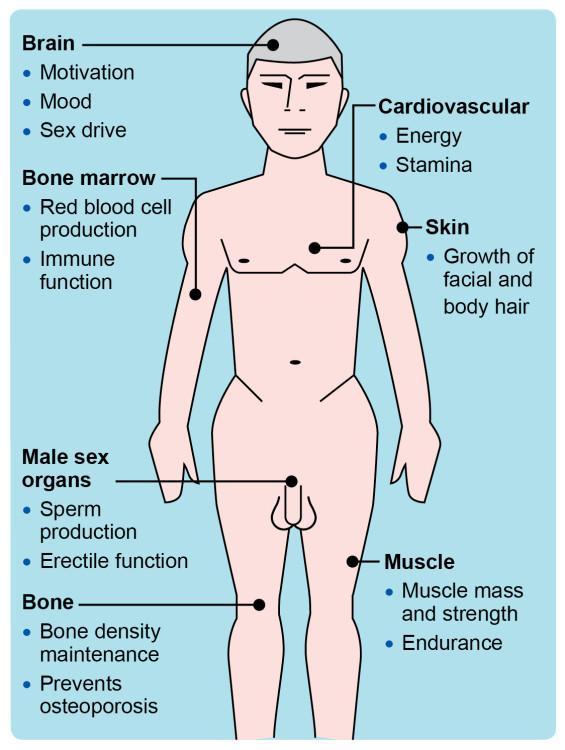In the intricate tapestry of human health and well-being, few subjects evoke as much intrigue and debate as libido—the drive that fuels our intimate connections and personal relationships. As societal norms around sexuality evolve and the quest for vitality intensifies, the conversation surrounding hormonal health has taken center stage. Among the myriad of factors influencing sexual desire, testosterone stands out as a pivotal player, particularly for those experiencing fluctuations or declines in libido. Testosterone therapy, once a niche topic limited to clinical discussions, is now gaining recognition as a potential pathway to rejuvenating sexual health. In this article, we delve into the multifaceted world of testosterone therapy, exploring its implications, benefits, and considerations for those seeking to enhance their libido and rediscover the spark that enriches their lives. Join us as we navigate the complexities of hormones and desire, illuminating paths toward a more fulfilling intimate experience.
Understanding Testosterone and Its Role in Libido
Testosterone, a crucial hormone primarily produced in the testes in men and ovaries in women, significantly influences sexual desire and overall well-being. While often associated with male traits, this vital hormone exists in both genders and plays a central role in libido. Decreased testosterone levels can lead to a range of symptoms, including reduced sexual desire, fatigue, and mood fluctuations. Understanding the intricate relationship between testosterone and libido is essential for those contemplating hormone therapy, especially as age-related declines in hormonal levels have become increasingly common.
Many factors can affect testosterone levels, including stress, lifestyle choices, and certain medical conditions. Individuals considering testosterone therapy should first assess their specific hormonal health through blood tests and consultations with healthcare professionals. A personalized approach may involve lifestyle modifications such as:
- Regular Exercise: Engaging in physical activity can help boost testosterone naturally.
- Balanced Nutrition: Incorporating healthy fats, proteins, and essential vitamins can support hormonal balance.
- Quality Sleep: Adequate rest is crucial for maintaining hormone levels.
| Factor | Impact on Testosterone |
|---|---|
| Age | Natural decline post-30s |
| Weight | Obesity may lower levels |
| Stress | Increased cortisol can reduce testosterone |
| Diet | Good fats enhance testosterone |

Signs of Low Testosterone and Its Impact on Sexual Health
Individuals experiencing low testosterone levels may encounter a range of symptoms that can profoundly affect their quality of life. Common indicators include:
- Reduced libido: A noticeable decline in sexual desire
- Erectile dysfunction: Difficulty in achieving or maintaining an erection
- Fatigue: Persistent tiredness that interferes with daily activities
- Depression mood swings: Emotional fluctuations and a sense of sadness
- Loss of muscle mass: Decreased strength and physical performance
The implications for sexual health can be significant, as testosterone plays a crucial role in various physiological functions. A deficiency might not only affect sexual desire but also lead to:
| Impact | Potential Outcomes |
|---|---|
| Lower confidence: | Increased anxiety about sexual performance |
| Relationship stress: | Strain in intimate partnerships due to decreased sexual activity |
| Increased health risks: | Heightened susceptibility to conditions like obesity and diabetes |

Exploring Testosterone Therapy Options
When considering testosterone therapy to enhance libido, it’s essential to explore various options available that can cater to individual needs. Patients may find themselves choosing from different delivery methods, each with its own benefits and potential drawbacks. Some popular forms of therapy include:
- Injections: Regularly scheduled injections can provide a steady supply of testosterone.
- Patches: Transdermal patches offer a convenient way to deliver testosterone directly through the skin.
- Gels: Topical gels allow for easy absorption, yet require careful application to avoid unintended transfer.
- Pellets: Implanted under the skin, pellets release testosterone over a sustained period.
Before choosing a therapy, it’s crucial to evaluate your personal health history and lifestyle. Engaging with a healthcare professional can aid in determining the most suitable method based on individual hormone levels and overall health. Here’s a simple comparison table to consider:
| Method | Administration | Frequency |
|---|---|---|
| Injections | Intramuscular | Weekly to Biweekly |
| Patches | Transdermal | Daily |
| Gels | Topical | Daily |
| Pellets | Subcutaneous | Every 3-6 months |

Benefits Beyond Libido: The Broader Effects of Testosterone Therapy
While the primary draw of testosterone therapy often revolves around enhancing libido, its positive impacts reach far beyond the bedroom. Studies suggest that testosterone plays a crucial role in various bodily functions, contributing to overall well-being. Individuals undergoing therapy frequently report improvements in numerous areas, including:
- Enhanced Mood: An increase in testosterone levels can lead to improved mood stability and a reduction in feelings of depression and anxiety.
- Increased Energy: Many patients experience a revitalized sense of energy, combating fatigue that is often associated with low testosterone levels.
- Improved Muscle Mass: Testosterone is key for muscle growth, which can enhance physical strength and metabolism.
- Better Cognitive Function: Some evidence suggests positive effects on memory and cognitive processing, potentially enhancing focus and mental clarity.
The therapeutic effects of testosterone can also have notable implications for cardiovascular health. Testosterone therapy has been associated with:
| Health Benefit | Description |
|---|---|
| Heart Health | Potential improvements in cholesterol levels and blood circulation. |
| Bone Density | Supports bone strength, reducing the risk of osteoporosis. |
| Metabolic Function | May aid in reducing body fat and increasing metabolic rate. |
Engaging in testosterone therapy can thus foster a holistic enhancement of health, making it a consideration not only for those seeking to boost libido, but also for individuals aiming to improve their overall quality of life.
Navigating Risks and Side Effects of Testosterone Treatments
Undergoing testosterone therapy can be an empowering step towards enhancing libido, but it is crucial to remain vigilant about the potential risks and side effects associated with treatment. Some individuals may experience mood swings, leading to irritability or increased aggression. Additionally, there is a need for ongoing monitoring of blood levels to prevent complications such as erythrocytosis, where an elevation in red blood cells may lead to cardiovascular issues. Other side effects that users should be aware of include:
- Acne or oily skin
- Sleep apnea, which can disrupt restful sleep
- Breast enlargement or tenderness
- Hair loss on the scalp while experiencing increased body hair
Furthermore, it’s essential to approach testosterone treatments with an understanding of how they might affect pre-existing health conditions. For example, individuals with a history of prostate issues or certain cardiovascular diseases need to weigh their options carefully. Regular consultations with healthcare professionals should encompass the following key assessments:
| Assessment Category | Considerations |
|---|---|
| Hormone Levels | Monitor testosterone and estrogen levels |
| Cardiovascular Health | Assess risk factors and heart function |
| Prostate Health | Regular PSA testing for early detection |
| Mood and Mental Health | Evaluate emotional well-being frequently |
Integrating Lifestyle Changes for Enhanced Sexual Well-Being
Incorporating lifestyle changes can significantly boost your sexual well-being, especially when considering testosterone therapy. A few lifestyle adjustments can complement hormone treatments, leading to improved libido and overall sexual health. Consider incorporating the following into your daily routine:
- Balanced Diet: Focus on nutrient-rich foods that support hormone production, such as healthy fats, lean proteins, and leafy greens.
- Regular Exercise: Engage in a combination of cardiovascular and strength-training workouts to enhance blood flow and boost testosterone levels.
- Stress Management: Practice mindfulness and relaxation techniques like yoga or meditation to lower cortisol levels, which can negatively impact sexual drive.
- Quality Sleep: Ensure 7-9 hours of quality sleep per night to facilitate the body’s natural hormone production.
Furthermore, understanding the interplay between testosterone therapy and these lifestyle modifications is crucial. A comprehensive approach will not only maximize the effectiveness of your treatment but also foster a healthier, more satisfying intimate life. Below is a simple overview that highlights key factors in achieving a balanced life conducive to enhanced libido:
| Factor | Impact on Libido |
|---|---|
| Nutrition | Provides essential vitamins that support hormonal health. |
| Exercise | Increases endorphins and testosterone levels, enhancing mood and desire. |
| Stress | Reducing stress can prevent hormonal imbalances. |
| Sleep | Improves recovery and hormone regulation. |
Consulting with Healthcare Professionals for Personalized Approaches
Before embarking on any treatment for enhanced libido, it is crucial to consult with healthcare professionals who can provide personalized insights tailored to your unique circumstances. These experts will assess your overall health and hormone levels through comprehensive evaluations, helping to identify whether testosterone therapy is the right option for you. Their expertise includes understanding the physiological, psychological, and contextual factors that impact libido, ensuring that you receive a well-rounded approach to your sexual health.
During consultations, healthcare professionals may discuss a range of considerations, including:
- Medical History: Previous health issues or hormone imbalances.
- Lifestyle Factors: Diet, exercise, and mental health status.
- Potential Risks: Possible side effects and interactions with other medications.
- Alternative Solutions: Non-hormonal therapies that can enhance libido.
By engaging in an open dialogue, you empower yourself with the knowledge and support necessary to make informed decisions. Understanding the intricacies behind testosterone therapy allows for a deeper appreciation of its benefits and limitations, guiding you toward a path that promotes both physical and emotional well-being.
Q&A
Q&A: Understanding Testosterone Therapy for Enhanced Libido
Q1: What is testosterone therapy?
A1: Testosterone therapy involves the administration of testosterone to treat hormonal imbalances or deficiencies. Often prescribed in the form of injections, patches, gels, or pellets, this therapy aims to restore normal testosterone levels in individuals who may be experiencing symptoms related to low hormone levels, including decreased libido.
Q2: How does testosterone impact libido?
A2: Testosterone plays a crucial role in sexual desire and arousal. It is often referred to as the male sex hormone, but it is vital for all genders. Appropriate levels of testosterone can enhance libido, increase sexual interest, and improve overall sexual function. Low testosterone levels may lead to reductions in sexual desire and satisfaction.
Q3: Who should consider testosterone therapy for libido enhancement?
A3: Individuals experiencing low libido associated with confirmed low testosterone levels may be candidates for therapy. This may include older adults or those with specific medical conditions that affect hormone levels. It’s vital to undergo thorough medical evaluations, including blood tests, to diagnose the underlying issue before considering therapy.
Q4: What are the potential benefits of testosterone therapy for libido?
A4: Many patients report improved sexual desire and response after starting testosterone therapy. Other benefits may include increased energy levels, improved mood, and enhanced overall well-being. However, responses can vary personally, making it essential to tailor treatments to individual needs and symptoms.
Q5: Are there risks associated with testosterone therapy?
A5: Yes, while testosterone therapy can offer benefits, it is not without risks. Potential side effects may include acne, hair loss, mood swings, sleep apnea, and an increased risk of cardiovascular issues. Regular medical supervision is essential to monitor hormone levels and adjust treatment as necessary.
Q6: How does one begin testosterone therapy?
A6: To start testosterone therapy, individuals should consult a healthcare provider specializing in hormone replacement therapies. This initial consultation will typically involve discussing symptoms, medical history, and undergoing blood tests to check hormone levels. If low testosterone is confirmed, a personalized treatment plan can be developed.
Q7: Can lifestyle changes complement testosterone therapy?
A7: Absolutely! Lifestyle choices can significantly influence testosterone levels and libido. Regular exercise, a balanced diet, managing stress, and sufficient sleep can all contribute to hormonal balance. Combining these positive changes with a supervised testosterone therapy plan may lead to improved outcomes.
Q8: Is testosterone therapy suitable for everyone?
A8: No, testosterone therapy is not suitable for everyone. Individuals with certain medical conditions, such as prostate cancer or severe heart disease, may be advised against it. A thorough evaluation by a healthcare professional is crucial to determine the appropriateness of therapy for each individual.
Q9: What should individuals keep in mind before starting testosterone therapy?
A9: Before beginning testosterone therapy, individuals should consider the potential benefits and risks, explore treatment options, and maintain open communication with their healthcare provider. Understanding the long-term commitment and monitoring involved in therapy is also essential for making an informed decision.
By addressing these questions, we aim to shed light on testosterone therapy for enhanced libido and encourage informed conversations between individuals and their healthcare providers.
To Wrap It Up
As we draw the curtain on our exploration of testosterone therapy and its potential in enhancing libido, it’s clear that this complex subject intertwines science with personal experience. While the allure of revitalized intimacy beckons, it is essential to approach such therapies with caution, guided by professional advice and a keen understanding of individual health. The journey towards a more fulfilling libido is unique for everyone, and what works for one may not work for another.
Ultimately, the decision to pursue testosterone therapy should be made thoughtfully, considering both the benefits and the potential risks involved. With continued research and open dialogue, we can better grasp the nuances of sexual health and hormonal balance. As we navigate the landscapes of our desires and well-being, may we find the balance that resonates with our own lives—a journey marked not only by choice but by informed understanding. Your libido is important, and your well-being takes center stage; approach every step mindfully, and let the exploration continue.










